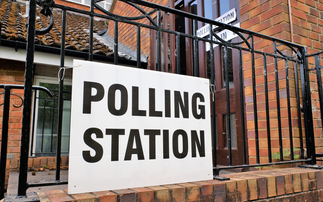Jane Burston, who blogged for BusinessGreen from the climate summit, asks if COP17 was the success politicians claim
After two weeks at the Durban climate summit, I was thoroughly burned out. Never mind the negotiators that worked through three consecutive nights to salvage some sort of agreement: the unremitting but inexhaustibly interesting schedule of side events, meetings and blog writing left me shattered.
COP17 was thoroughly worthwhile though, for me at least. Nowhere else can you find such a rich mix of people and organisations working on climate change. The divergent views make for lively debate, the diversity and international assortment of people is great for networking and the hectic pace is genuinely energising.
But I was only part of the background - the noise that surrounds conferences of this nature. Was the conference worthwhile on its own terms? Did it divert the planet from its path towards catastrophic climate change?
The politicians claim success. The Kyoto Protocol has been kept alive. For the first time, both developed and developing countries have agreed to be covered by a legally binding treaty. We have a roadmap towards achieving an agreement by 2015 and ensuring it is ratified globally by 2020.
So was it really a success? Is it actually the case that countries previously defined as ‘developing' will soon be bound by a legal treaty on emissions reduction?
I don't have a clear answer to the latter question; unhelpfully I can only offer a question in return.
The ‘Durban Platform', as the final agreement was called, signed all countries up to an agreement to negotiate an "agreed outcome with legal force" or a "legal outcome". But if, as the EU claim, a "legal outcome" is equivalent to a legally binding treaty, why were the US, China and India able to accept this language, but not the actual term "legally binding"? One for the lawyers I suspect.
Setting this aside, could COP17 be called a success?
Keeping the Kyoto Protocol alive would not have been a success in its own right. It enshrines a post-cold war definition of ‘developed' and ‘developing' countries that leaves countries with huge (and increasing) carbon footprints, and countries with large per capita carbon footprints, out of the equation when it comes to reducing emissions.
But using the promise of its continuation as a tool to force such countries - and the US, which never ratified the Kyoto Protocol - into reductions of their own was exactly the right thing for the EU to do.
Equally, some timeline for agreeing the actual reduction targets and getting them ratified is necessary. 2015 sounds achievable for securing such targets, especially since an update to the scientific picture is due in 2014, courtesy of the Intergovernmental Panel on Climate Change.
Their reports are getting ever more gloomy as the accuracy of data increases and scientists are able to forecast temperature increases and impacts with increasing certainty.
There were two major areas where no discernable progress was made at COP17.
The first is getting emissions to peak before 2020 at the latest, which the science says is necessary to give us a 50 per cent chance of keeping global average temperature rises below 2 degrees C. Unless countries stick to (and some countries increase the ambition of) their voluntary pledges made at Cancun, this pre-2020 peaking of emissions is not guaranteed.
The second is plugging the ‘emissions gap' - the difference between current voluntary pledges of emissions reductions pre 2020, and the goal the science says is necessary to keep us on track for that same 2 degrees C target.
This gap was noted "with grave concern" in the Durban Platform, but clearly not with enough concern to do anything about it.
So COP17 was successful in getting us a commitment to get a commitment by 2020. A step in the right direction, but not as great as the politicians would have us believe.
Jane Burston is founder and director of offsetting company Carbon Retirement






